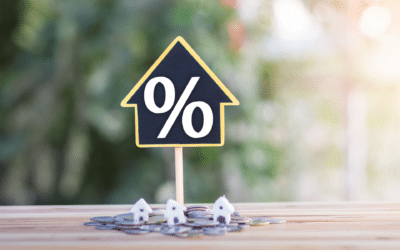As mortgage rates have increased, many people have explored different options to either lower their monthly payments or reduce the total amount of interest they pay overall.
One option could be to make a lump sum overpayment, but is it a good idea to use your savings to overpay your mortgage?
Some points to consider –
Savings rates vs mortgage rates
On a purely financial basis, it’s a good idea to compare your potential savings rate against your mortgage rate.
One of the benefits of rates increasing is that it usually benefits savers (not borrowers).
So you may be surprised to find out what savings rates are available.
If the rate you could receive from savings (after any tax) is equal or higher than the rate you pay on your mortgage, there could be an argument to keep the funds in savings.
Emergency Funds
Aside from the purely financial case, it’s a good idea to consider whether you have an emergency fund.
If possible, it’s usually a good idea to try and have somewhere between 6 months to 2 years worth of disposable income which is accessible in the case of an emergency.
If you use your savings to overpay your mortgage, it’s not usually possible to take the funds back again as easily should you need them.
Opportunity Cost
Assuming you have surplus funds, you also need to consider whether these savings were earmarked for something else.
If this is the case, you need to make sure that you are 100% happy to use the funds to overpay your mortgage as opposed to your original plan. Once again, it may not be as easy or even possible to ‘borrow’ the funds back again should you need them.
Early Repayment Charges
If you’ve decided that you definitely want to make an overpayment, you need to check whether doing so will trigger an early repayment charge.
Many mortgages that have early repayment charges also have an overpayment facility. This allows you to make overpayments within certain limits without penalty. This varies depending on the lender, but is usually up to 10% of the outstanding balance per annum.
Does it really make a difference?
If your objective is to reduce your monthly payment, you may be surprised at how a relatively large lump sum overpayment doesn’t have a huge impact on your monthly payments.
You need to find out the details (in addition to considering other factors such as those mentioned above) to decide whether you feel that this is a worthwhile exercise.
Having said that, in most cases, overpaying a mortgage can have a significant impact on reducing the amount of interest you pay over the long term, even if the monthly payments don’t reduce as much as you thought they might in the short term.
Whether using savings to overpay a mortgage is a good idea will depend on each individual’s circumstances. The results will vary and the ultimate decision will depend on the factors above, your individual’s objectives and whether you believe the outcome is actually worthwhile.
The best thing to do is get all of the facts and figures which should help you make good informed decisions.




